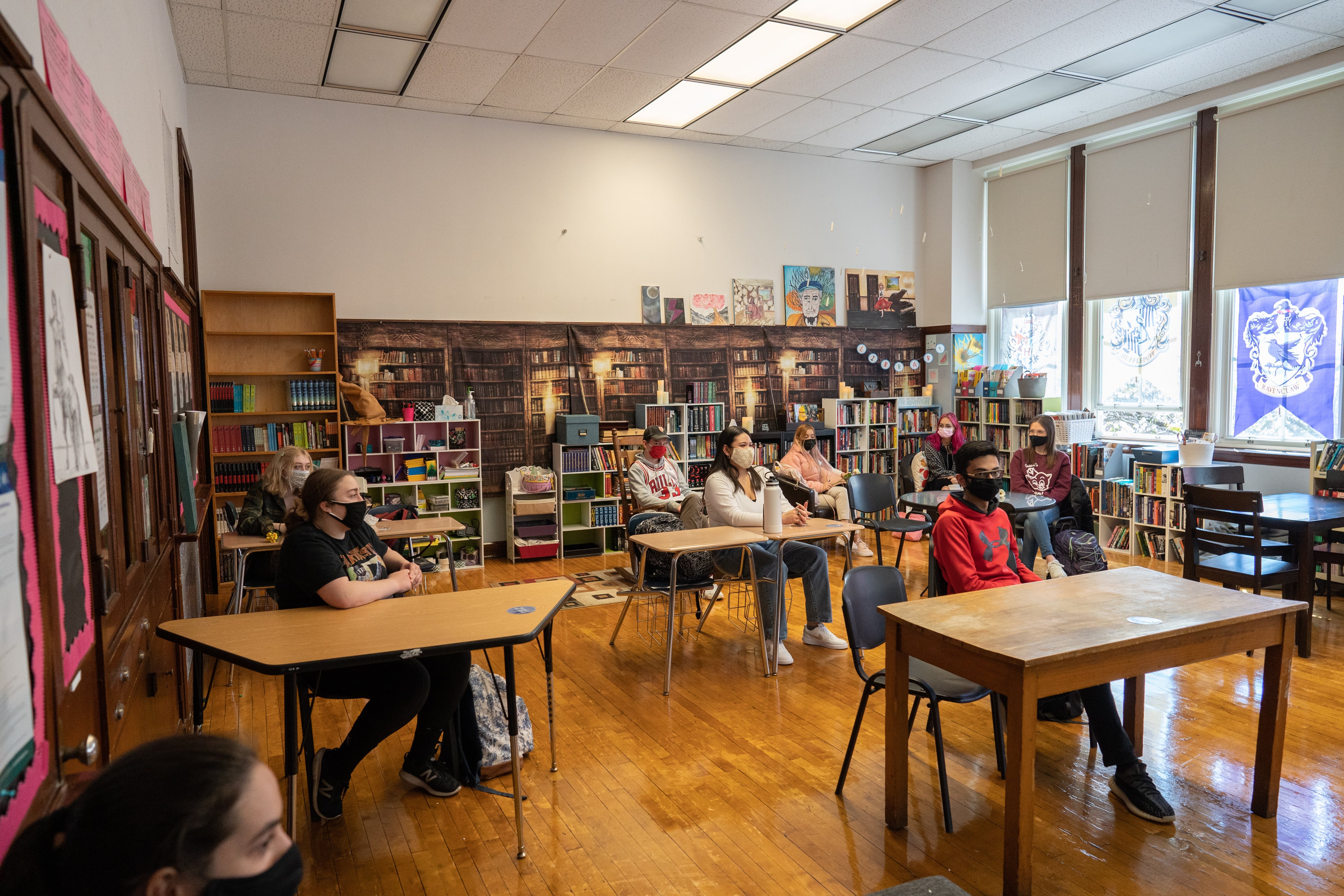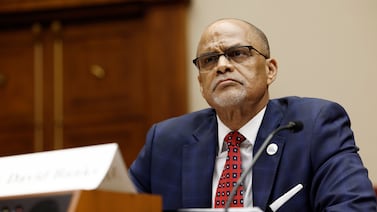Illinois lawmakers passed a number of education bills at the end of the legislative session that will directly impact what children learn in classrooms across the state and what services they can access.
Lawmakers dedicated more state funding to early childhood education, pushed for a plan to change how reading is taught, and passed policy aimed at increasing access to mental health services for students. The general assembly also approved a $50.6 billion budget for 2024 that touted an additional $570 million for K-12 education and more funding to help students pay for higher education. Gov. J.B. Pritzker signed the budget into law last Wednesday.
Among the education bills passed this session are one that prevents libraries from banning books, which Pritzker signed Monday, and another that will require school districts to teach Native American History — a contrast to pushes in other states to restrict what books can be used in classrooms and to limit teaching about race.
Two other bills headed to the governor’s desk are one that will require the Illinois State Board of Education to create a literacy plan for schools and require districts to offer full-day kindergarten by 2027. Many other education-related bills didn’t make it to the finish line.
Here’s where some education-related bills landed at the end of the spring legislative session.
Bills improve access to dual credit, mental health services
Career and Technical Education and dual credit opportunities for students with disabilities: House Bill 3224 will require school districts to provide a student and parent with information about career and technical education opportunities and dual credit courses. If the student is enrolled in a dual credit course, it must be included as part of the student’s transition Individualized Education Program activities.
Task force on children’s mental health: Senate Bill 0724 will make it easier for families to access mental health services across several of the state departments, including the Illinois State Board of Education. This bill will create the Interagency Children’s Behavioral Health Services Act and require the state to establish a Children’s Behavioral Health Transformation Officer who will lead the state’s effort to work across state agencies to help families get services. This bill unanimously passed both chambers of the general assembly with bipartisan support.
Establishing a home visiting program for families: Illinois has appropriated funding for the state Department of Human Services’ home visiting programs for over 30 years, but Senate Bill 1794 writes the program into law to protect it in the future. The goals of the program are to improve maternal and newborn health, prevent child abuse and neglect, promote children’s development and prepare them for school, and connect families to community resources.
Expanding dual language programs: House Bill 3822 will require the Advisory Council on Bilingual Education to create a report for the Illinois general assembly on how to incentivize dual language programs. The report will look at expanding dual language programs and instruction. It will also explore possible public-private partnerships, funding for programs, how to increase the number of qualified bilingual teachers for dual language programs, and standards for measuring student progress in programs.
Migrant youth, dyslexia screening proposals didn’t pass finish line
Supporting school-age migrant youth: Since the fall, Texas officials have bused thousands of people from the U.S.-Mexico border to Illinois — many are school-age children. Currently, many of recently arrived migrants are being sheltered at police stations across the state. The city of Chicago has committed $51 million to help migrants. House Bill 2822 would have required the Illinois State Board of Education to create a new grant program for public schools. This bill didn’t make it past committee.
Reporting informal removals of students with disabilities: House Bill 3600 would have required students’ schools to send a written notice to parents if students are sent home during the school day, given in-school suspension, or told not to come to school. Although this bill did not pass, Access Living, a nonprofit based in Chicago that advocates for people with disabilities and pushed for the bill, got a commitment from the Illinois State Board of Education to provide guidance to schools on documenting informal school removals.
Screening young children for dyslexia: House Bill 1124 would have required public schools to screen students for dyslexia in grade K-12 starting with the 2023-24 school year. The bill would have required the State Board of Education to require guidelines in the dyslexia handbook on how to screen children for dyslexia and other reading difficulties. The bill picked up steam earlier in session after passing a key committee in the House, but failed to get on the floor.
Samantha Smylie is the state education reporter for Chalkbeat Chicago, covering school districts across the state, legislation, special education, and the state board of education. Contact Samantha at ssmylie@chalkbeat.org.







